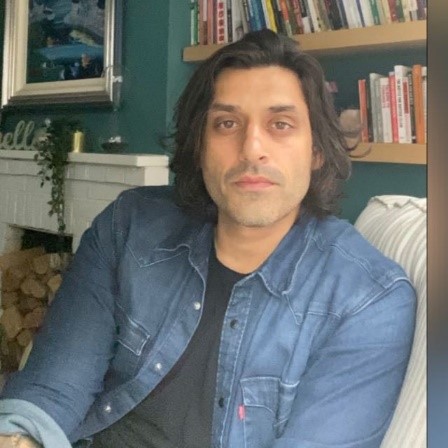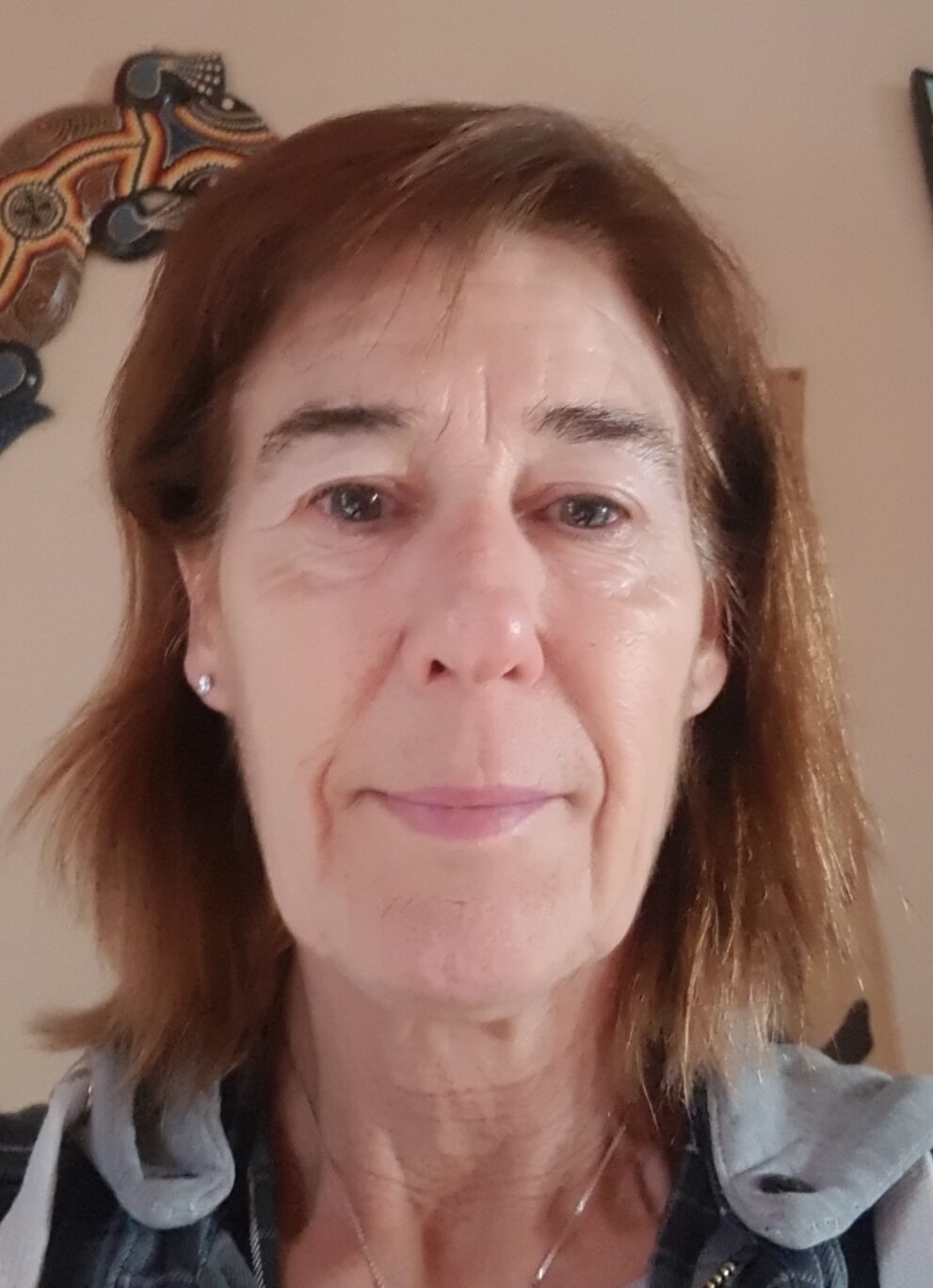Widening participation in higher education: our bursary programme
What is the Bursary Programme?
An important part of our work over the last few years has been to launch a bursary programme for under-represented students, specifically from Black, Asian and Ethnic Minority backgrounds, as part of the Trust’s commitment to becoming a more inclusive education provider. This highly successful programme is now in its second year, with a total of 18 bursaries being awarded to date across a variety of courses.
An essential part of the programme has been to provide students with mentoring for the duration of the programme of study. This was based on the recognition of the value of mentoring to support students who, we know from various sources, including our student survey, can easily feel marginalised, excluded or out of place; to help them as they settle in and navigate studying at the Trust. We have established a team of mentors with experience of our courses, we interviewed two of them, Nasif Nijabat and Myra Berg.

Nasif Nijabat
Nasif, also known as Nij, is a highly specialised Systemic and Family Psychotherapist, Social Worker and lecturer, with over 20 years’ experience working with families, children and young people in the UK. He is currently a service and clinical lead for the mental health support teams in schools (London Borough of Barking & Dagenham) and a visiting lecturer on our D24 course.
Nij identifies as a South Asian man from east London and is the son of a migrant. He said, “I’ve always been very interested in equity and social justice, but through my studies at the Tavi, I have started to appreciate and understand the processes, systems and structures that influence society. I have become very passionate about who decides what the dominant societal discourse is. Take, for example, western patriarchal white privileged systems and processes. We find that many were set up during and since the colonial period, and in this context I’m very much a decolonial thinker. What that means is simply that there are other ways of knowing and doing. That’s not to discredit western ways of thinking or doing, but incorporating and honouring differences.”
When he first heard about the bursary programme Nij was sceptical. He said, “But then I thought, we have to start somewhere. We’ve got to bridge the gap and we’ve got to take on antiracist attitudes. I’ve always been of the opinion that it’s not good enough to stand on the side-line. I felt I had a responsibility to be a part of the programme, and when I started, I felt really passionate about supporting it. I was like, ‘You know what? I’d really like to share some of my own ideas because I’ve been a student at the Tavi also and I genuinely think we have got to have the uncomfortable conversations, because dismantling 700 years of institutional racism will be no mean feat and it’s going to take a while.
“I can remember my own experience of coming into the Tavi, the reputation of the place was daunting, and I felt really in awe at the way people sounded. I’m a bit of a cockney, I’m aware of that, but I became really self-aware. I may be stereotyping, but the Tavi is predominantly middle class and white. It has a status and I love being a part of it. But, in the same breath, I felt very insecure. There wasn’t a mentor system then. So, I think if I had had a mentor, it would’ve been quite containing to have a space to talk some of this stuff through.”
Speaking about his role as a mentor Nij says, “You can bring anything to the mentor space. It’s something where we can talk about diversity and difference, or what may be going on for the student in relation to the Tavi and their studies. The biggest theme within sessions with mentees has been that the Tavi has not been what they had expected, although they had preconceived ideas, in reality, it felt really alien. Another theme was of students feeling they were being positioned as being the representative within group discussions and forums, as the only black or brown person, the only person of visible difference. The pressure or expectation of having to be the spokesperson for all people of colour, rather than just talking from their own experience or voice. And, in attempts to be anti-racist, discussions move to a person’s skin colour automatically. There are many other social subcategories to talk to, such as class, sexuality, deprivation or disability, economics, power or location and the intersections between them. But somehow race becomes the focus, the ‘go to’. I do understand that we have to start somewhere, and the Tavi is facilitating conversations, which may feel a little clunky, but we’ve got to do something collaboratively – something authentic.”

Myra Berg
Myra comes to us from the teaching profession, where she trained as both an educational psychologist and a child psychotherapist. She has also trained as an adult and child trauma psychotherapist, and has taught on D1, M4, M7 and M34. She runs the trauma workshop for the Year 2 students as well as individual and group supervisions. She has particular interest in autistic spectrum conditions, trauma, body-based therapy, working in schools, using mindfulness and meditation in therapeutic work and group work with children and adolescents.
Myra identifies as a white, female, heterosexual of Jewish origin (but not religious) and with a working-class background. She says that it was her experience of teaching that drew her to the mentoring role. “I love teaching and I was a teacher before I was a psychotherapist. That was my first job, and I did it for 20 years. Partly, I like to impart knowledge and information that I feel has been helpful to me and I like learning and I learn a lot from the students that I work with. It’s a bit like carrying on a lineage.”
She has had a varied experience of teaching and learning and said, “I went to school, went to university, had some good teachers, had some less good. And I’ve had some brilliant teachers during my training at the Tavi. So, I developed some ideas of what it is like when you have a good teacher. But I’ve had times where I felt like an outsider, many of us have. I think it’s nice to be able to help people who have been in the same boat, or if not in exactly the same boat (as I’m not a Black Asian & Minority Ethnic student) having the same feelings.
Myra believes that the bursary programme has made a lot of difference and said, “Some students feel alone. Then there’s the ‘If only this, if only that’ aspect. It can be helpful to have somebody you know that you can relate to. It’s a bit like going to a therapist; the student knows what they can bring, and they have control over what’s discussed. I think the mentor can be a great deal of help in building up somebody’s confidence and for running through things they might want to discuss at seminars or put in their essays.
“They can use the mentor as someone to run ideas through before they go into the lion’s den, which it is, because it’s the Tavistock. The Tavistock has got a massive reputation and people can idealise it massively. They can also become very disillusioned when they find that isn’t quite what they’ve expected. So, I think that having a mentor can really help with understanding the contradictions that make up the Tavistock, as in any organisation. The mentor can also be very helpful in working through with the mentee exactly what to make of it and maybe reach a different perception or a plan of action depending on what the situation is and what is called for.
“As a mentor, I’m not a judge and that makes a big difference. Whether there’s a teacher who seems like a judgmental person or not, they’re often experienced as one because of their role. I’ve had different students all wanting different things, but ultimately, I think the basic thing is, ‘Can I fit into the Tavistock?’ That seems to be the basic question. And it’s a great question, probably, for everyone that comes to the Tavistock, staff included.”